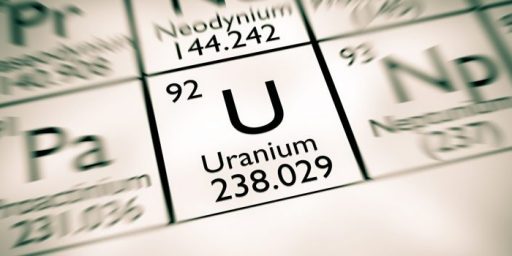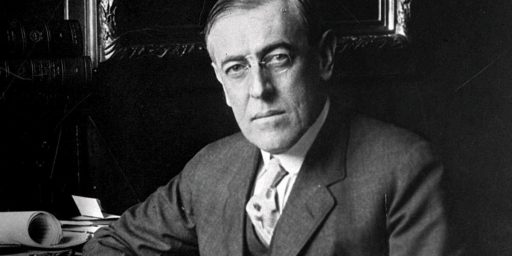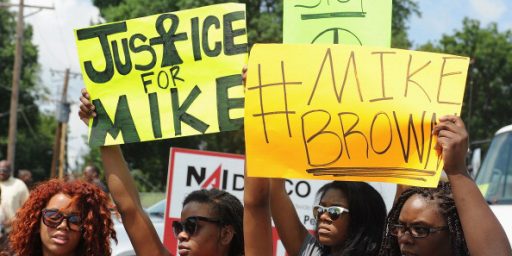CAP ON NIGER
Caspar Weinberger has an interesting op-ed with a bizarre subtitle: “How many electoral votes does Niger have anyway?” It’s a shame he (or some wag at WSJ) decided to get cutesy with the headline, as the piece is actually quite substantative–and having nothing to do with that tagline other than several references to Niger.
The substance of the piece:
The British have never denied the report that Iraq was trying to buy uranium from Africa, a point stressed by Prime Minister Tony Blair in Washington yesterday. When Vice President Richard Cheney, in February 2002, was shown the reports about a possible sale of “yellowcake” (a form of partially processed uranium ore), he asked the CIA to investigate this further.
At that point the CIA committed a major blunder; it asked a very minor former ambassador named Joseph Wilson IV to go to Niger to investigate. Mr. Wilson was an outspoken opponent of our invasion of Iraq; he thought “a strict containment regime, backed by a threat of force” was enough to deal with a Saddam Hussein who had already violated all his surrender pledges to us at the end of the Gulf War and had violated 16 United Nations resolutions.Mr. Wilson’s “investigation” is a classic case of a man whose mind had been made up using any opportunity to refute the justifications for our ever going to war.
By his own admission he first consulted with our ambassador to Niger, who felt “she had already debunked” the report of Niger’s attempted sale. Mr. Wilson then spent eight days “drinking sweet mint tea and meeting with dozens of people.” His conclusion: “It did not take long to conclude it was highly doubtful that any such transaction had ever taken place.”
Because Mr. Wilson, by his own admission, never wrote a report, we only have his self-serving op-ed article in the New York Times to go by. He also noted that “Niger formally denied the charges.” He said there “should be” documents reporting on his unwritten briefings and that there should be a written summary of his views to the vice president (“which may have been delivered orally”), but that he has never seen any of these reports.
If we are to rely on this kind of sloppy tea-drinking “investigation” from a CIA-chosen investigator–a retired ambassador with a less than stellar record–then I would say that the CIA deserves some of the criticism it normally receives.
Indeed.





As a foreigner I find those personal attacks amazing particularly knowing that the IAEI in March already concluded that the British documents were most likely ‘not authentic’:
“Based on thorough analysis, the IAEA has concluded with the concurrence of outside experts that these documents which formed the basis for the report of recent uranium transaction between Iraq and Niger are in fact not authentic. We have therefore concluded that these specific allegations are unfounded.”
The administration has already admitted that adding those 16 words was a mistake. US Intelligence sources thought the Niger-Iraq claims were dubious. Why do things always end up in personal attacks in the US?
—